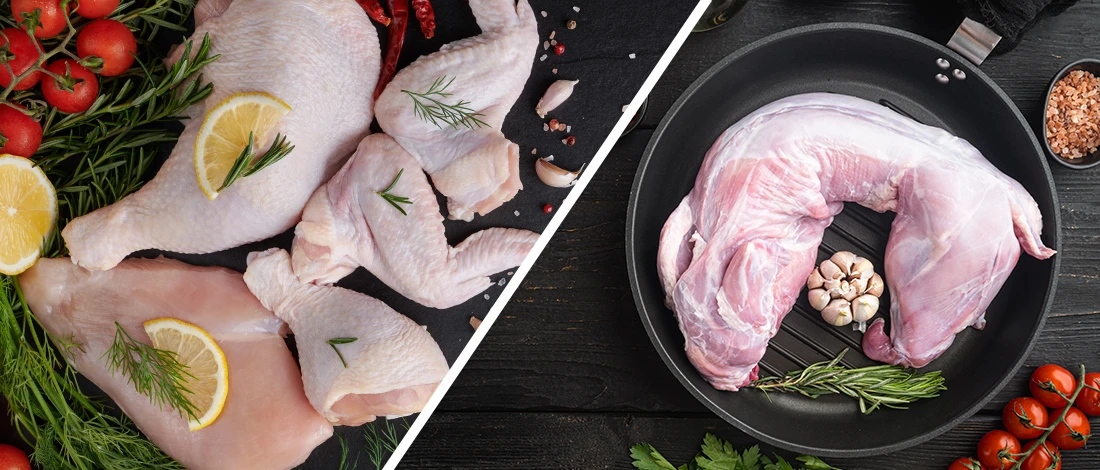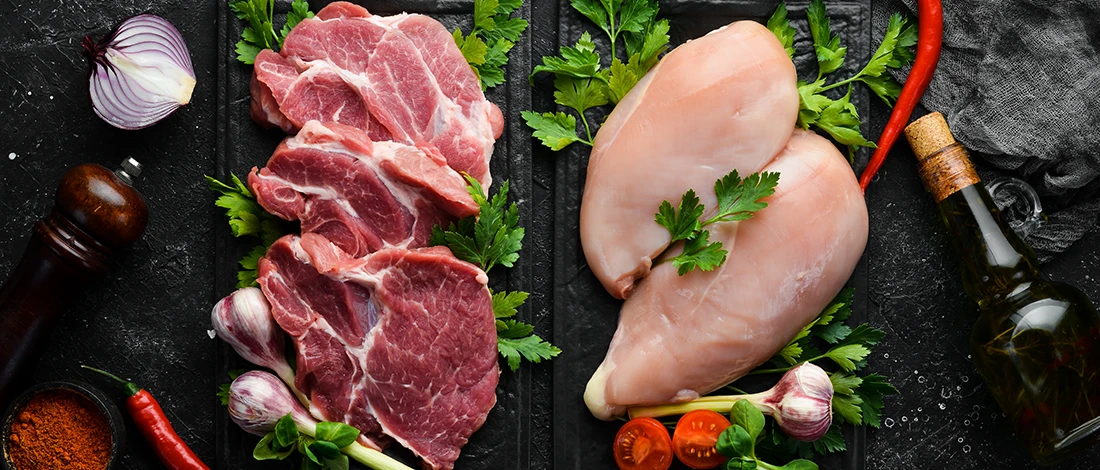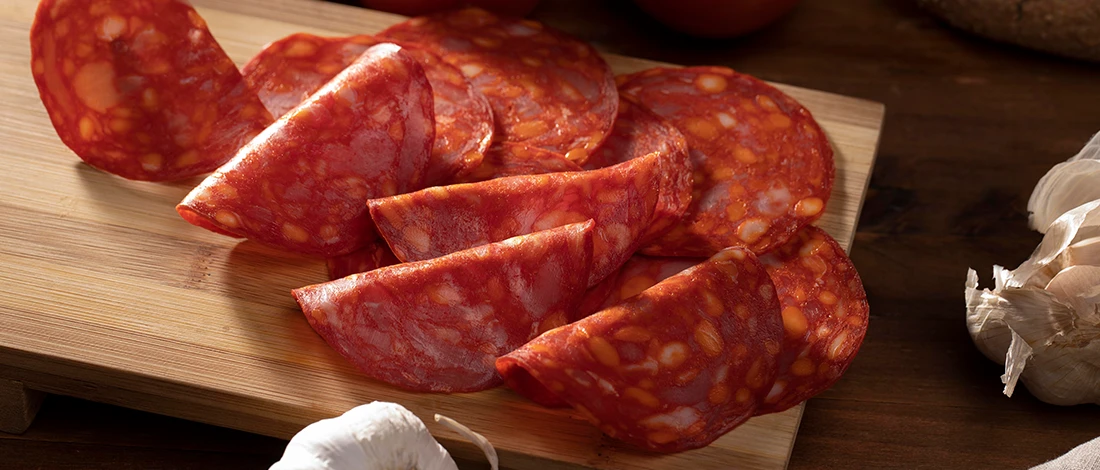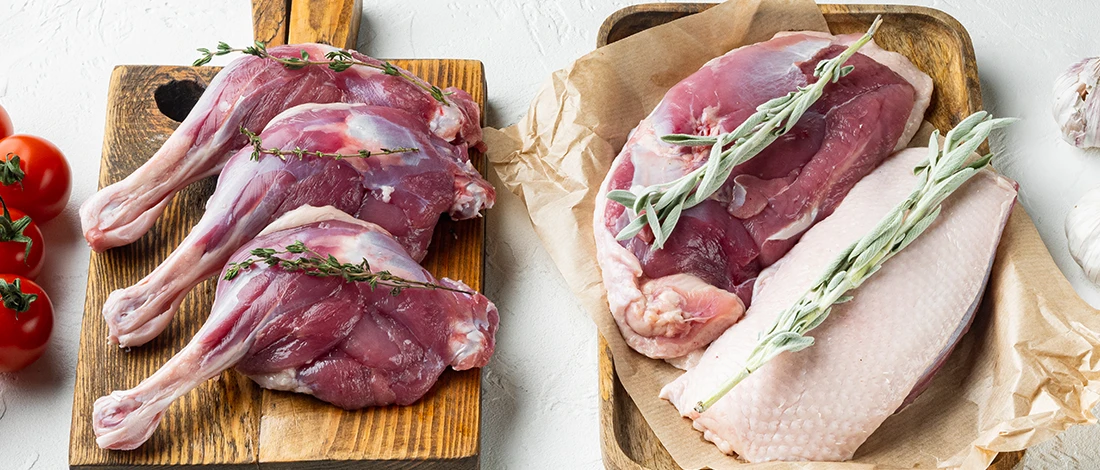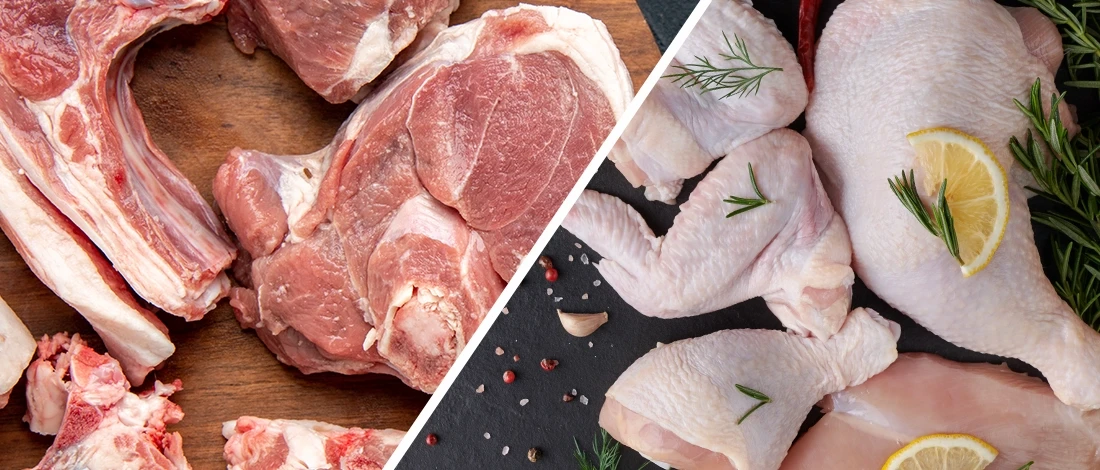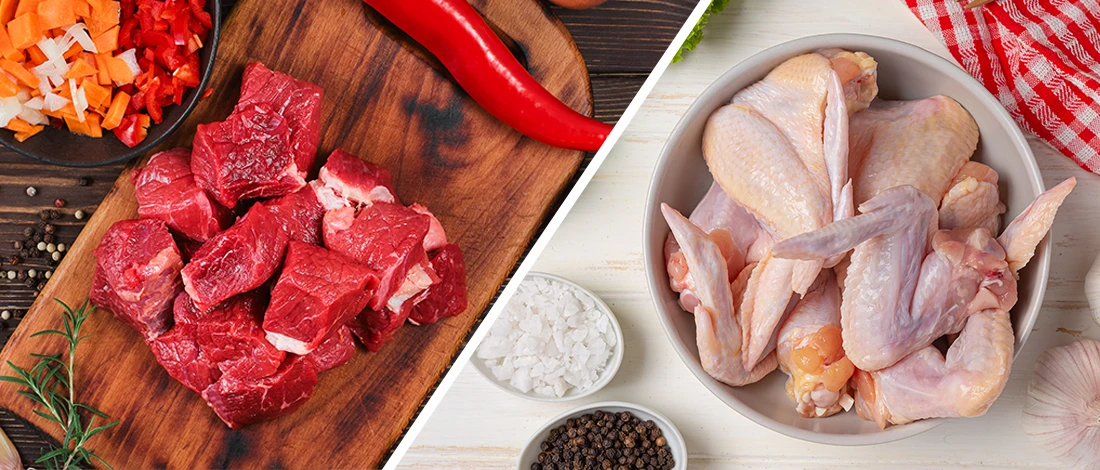Poultry meat is a staple in most households, with chicken coming at #1 and duck following closely behind. As a passionate carnivore, I regularly eat chicken and duck meat, but I never studied their differences meticulously until a few weeks ago.
At Carnivore Style, we believe understanding the differences between meats helps you make better choices for your diet.
Most importantly, you need quality meat to get the benefits of eating chicken. ButcherBox, an online meat delivery service, has been my go-to source for poultry for the past three years.
I talked with my butcher and a nutritionist to learn all the differences between chicken and duck and spent hours browsing through online data to get the full picture.
Here’s what I found out.
Quick Summary
- There are significant nutritional differences between chicken and duck.
- Duck fat is healthier than most other animal fats.
- Chicken is overall healthier than duck.
4 Differences Between Chicken and Duck
There are four main differences between these two types of meat.
1. Taste
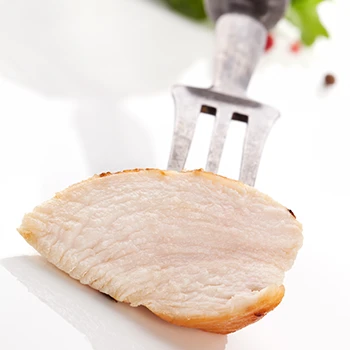
Chicken meat has a neutral taste that easily picks up flavors from seasonings and marinades. It’s more fibrous than duck meat.
The taste of chicken depends on the way it’s prepared and seasoned.
Duck meat has an earthier, gamier flavor because it has different proteins than chicken [1].
It has more fat, making it more tender and moist. Overall, duck meat resembles red meat more than chicken because of its high-fat content.
2. Duck and Chicken Meat Nutrition
Here’s how nutritional info for chicken and duck meat differs:
- Calories - Chicken has fewer calories than duck meat. 100g of chicken breast has 165 calories, while 100g of duck has 336 calories, which is a huge difference [2]. Plus, most calories in chicken come from protein, while calories from duck meat mostly come from fat.
- Protein - Chicken has more protein than duck. 100g of chicken has 31g of protein, while duck has 18g. However, both types of poultry have the same protein quality, as they are rich in amino acids.
- Fat - Chicken has less fat than duck. The total fat for 100g of chicken breast is 3.6g, while duck fat is over 28 for 100g. Duck also has more saturated fats but has similar amounts of polyunsaturated fatty acids as chicken.
- Vitamins - Duck meat has more vitamins than chicken. For example, a duck has three times more vitamin B1 and over two times more vitamin K. It also contains vitamins B2, E, A, and folate [3]. Moreover, duck meat has vitamin D, which chicken doesn’t have. However, chicken contains more vitamin B6 and vitamin B3. Neither chicken vs. duck meat contain vitamin C.
- Minerals - Chicken and duck are both rich in metals. Chicken has more calcium, magnesium, selenium, and choline. Duck has two times more iron and copper and is lower in sodium. The amounts of potassium, zinc, and manganese are similar.
3. Cooking Methods
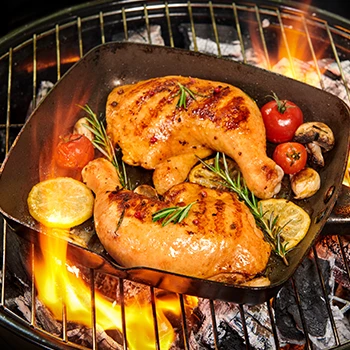
Chicken is easier to cook than duck. You should leave the skin on or the bone in and cook at high heat. Then, let the chicken rest for around 15 minutes. The internal temperature of the chicken should be at least 165 degrees [4].
Ducks also need to reach a similar internal temperature but are cooked differently. Duck fat content is much higher compared to chicken, so you can cook duck low and slow to have a tender and juicy result.
But if you don’t like the gamey taste of duck meat, you can soak it in buttermilk, vinegar, or lemon juice for a couple of hours.
Pro tip: Add strong aromatics to duck marinades, such as garlic and pepper. These ensure duck tastes like red meat and isn’t gamey.
Overall, duck is often cooked as red meat, so it’s medium rare with a light pink color inside.
4. Meat Cuts
Chicken is commonly divided into three parts: chicken breast, wings, and legs. The breast is the most commonly used part of the chicken.
This is also the whitest cut. Legs are darker and are made up of the drumstick and the thigh. The wing is between the leg and the breast meat.
The most popular and commonly available duck cuts include duck breasts, legs, and whole duck. You can also encounter duck eggs and duck fat, which can be used for cooking, for example, instead of olive oil.
Health Impact of Chicken vs. Duck Meat

Here’s how chicken and duck compare according to their impact on our health.
1. Cardiovascular Health
Duck meat is especially beneficial for heart health. One study found that duck meat prevents cardiovascular diseases because it lowers low-density lipoprotein levels [5].
2. Diabetes
The way you cook chicken and duck meat affects your health. Cooking poultry, including chicken, duck, and turkey breast, at high temperatures, for example, grilling and barbecuing, increases the risk of type 2 diabetes.
But, the risk is lower if you cook at lower temperatures, such as boiling and steaming [6].
“Those who have or are at risk for developing type 2 diabetes who eat meat, chicken, and fish regularly may choose cooking methods that use lower temperatures or brief periods of high heat, such as with slow cookers, baking, sous-vide, boiling, steaming, stewing, and stir-frying while avoiding high-heat and open-flame methods like grilling, barbecuing, broiling, and roasting.”
- Harvard School of Public Health
Also, a study found that eating chicken meat and duck meat instead of red meat leads to a lower risk of diabetes during pregnancy [7].
3. Increased Cholesterol
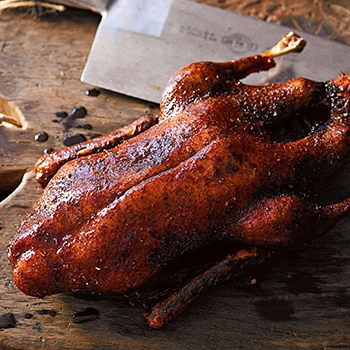
Duck meat poses a much higher risk of increased cholesterol than chicken meat.
This is because it’s higher in calories and saturated fats, while most chicken meat has mostly healthy unsaturated fat.
You should eat duck in moderation. Also, don’t use duck fat too much, especially to completely replace olive oil and other fat sources.
4. Weight Gain
Duck meat can lead to weight gain more than chicken. This is because of the higher fat content than chicken fat.
Also, duck is very fattening on its own, and you need to use other animal fats to have a properly cooked duck.
If you’re trying to lose weight, stick to chicken meat and only eat duck on special occasions. Also, avoid recipes that call for duck fat.
5. Food Deterioration
A study found that duck meat deteriorates more quickly compared to chicken because it’s prone to lipid oxidation when stored [8]. Lipid oxidation makes food go bad when not in use.
Also Read: What Is the Healthiest Meat to Eat?
FAQs
Is Chicken Meat Better than Duck Meat?
Yes, chicken meat is better than duck meat because it has less fat, more protein, and fewer calories. Chicken also has more calcium, magnesium, and selenium, but the duck is richer in vitamins.
Is Duck Meat Tastier than Chicken?
No, duck meat isn’t tastier than chicken. Duck meat is juicy, but it has an earthy and gamey flavor that many people don’t like. Chicken is a white meat that gets its taste from the seasonings and marinades used on it.
Is Duck Safer than Chicken?
Yes, duck is safer than chicken because ducks aren’t usually carriers of salmonella, unlike chickens and turkeys.
At Carnivore Style, we want to help you choose the best quality meats for your carnivore lifestyle. Check out our other guides and tips to learn more about different cuts and types of meat.
References:
- https://www.animbiosci.org/upload/pdf/20-142.pdf
- https://www.nutritionix.com/food/chicken-breasts/100-g
- https://www.fatsecret.com/calories-nutrition/generic/duck-cooked
- https://www.fsis.usda.gov/food-safety/safe-food-handling-and-preparation
- https://www.researchgate.net/publication/263643023_Effect_of_Duck-meat
- https://www.hsph.harvard.edu/nutritionsource/2018/03/23/how-meat
- https://www.researchgate.net/publication/322959346_Beneficial_Effects
- https://www.ncbi.nlm.nih.gov/pmc/articles/PMC6612790/


